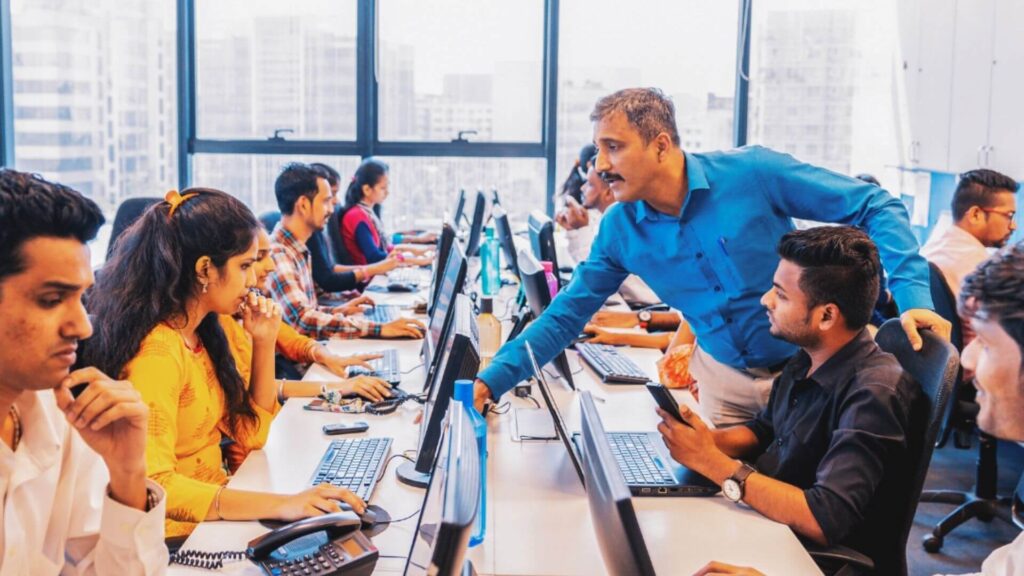Contact Us
Company Registered in Borgo Berga, Vicenza, Italy, 36100.
Registration Number (Partita Iva) 04299640245. Operating Worldwide.
JPM Business Solution
by cherylobal | Jan 22, 2021 | Business Abroad, India

In the past decade, India has been a hotbed for technology development. This is partly due to Indians’ predisposition towards math and science from an early age. In fact, the answer to why Indians are so good at technology lies not only with the education system, but also their culture and upbringing.
In this blog post, we’re going to look into why Indians are so good at technology and how they’ve come to dominate the industry in recent years.
India is a tech-savvy country and the tech industry contributes significantly to India’s GDP. Technology plays an important role in the Indian Educational System because technology can help overcome disadvantages or difficulties which are often experienced by rural children who are limited with access to resources, technology, technology-based resources, and technology-based skills.
Technology also helps boost cognitive development. Adapting to these needs by creating technology-centered learning spaces for its students.
Are they really the best in IT jobs?
Many students in India see IT jobs as among the best options for employment, with their high wages and international demand. With students looking for opportunities abroad, IT has become a sought-after field for students in India.
The students are the major group who are more eager to get into this sector. The students’ main objective of studying computer science is not just to satisfy their curiosity or interest but because they see it as an easy mode of employment with high salaries.
But aside from those facts, let me tell you about a distinction that Indians have that set them apart as the finest.
Download our free packet about outsourcing to India

But aside from those facts, let me tell you about a distinction that Indians have that set them apart as the finest.
More than just being a way of life, I believe it has a more far-reaching effect.
I have long admired the calm and composed nature that Indians maintain in the face of all stressful situations. Maybe it’s this mental tenacity which is key in solving the most complex IT issues, and becoming the world’s experts in technology. How do they do it?
The first summer I ever spent in India, in 2009,
I was volunteering for a charity organization in Kurukshetra.
I was watching the Director of the organization, Ari, as he drove our caravan of volunteers to a village visit. Cars, motorcycles, rickshaws, bicycles, trucks, buses, cows, and donkey carts all cut our path, caused us to halt to a screeching stop, and otherwise impeded a smooth journey to our destination. I marveled as Ari never once got angry. At each obstacle, he simply applied brakes, waited, and calmly continued. His facial expression never even changed.
“Aren’t you angry??! That guy just totally cut us off!!” I exclaimed. “Don’t you want to shout at him?!”
I would shout, maybe curse and gesture wildly too, if I were behind the wheel.
“Cheryl…” Ari patiently explained… “here in India, these things happen all the time. We can’t get angry, otherwise we would spend our whole lives being angry. And being angry is not good for your health.”
“But you are SO calm! How do you do it?!”
Ari was right.
Getting angry is definitely not good for your mental or physical health. We westerners are often too quick to fly off the handle, get flustered or frustrated, and even shout, when things don’t go our way, or the way they are “supposed” to go.
Perhaps we would be healthier if we would adopt the careful calculation and calm nature similar to the one Indians have. Moreover, panic and stress just hamper your ability to function properly.
While working for Microsoft in Bangalore a few years later,
I observed the same mental tenacity and calm coolness as I watched the support engineers handle multimillion-dollar clients. Sometimes these panicked clients were experiencing a technical difficulty which was causing them to lose hundreds of thousands of dollars by the minute.
I watched, in awe, as engineers handled panicked and raging clients with absolute patience, politeness, and a methodical approach. Of course, it was part of their job to stay calm. But they not only stayed calm; in many cases, they solved the issue in minutes. The client, who had thrown his coffee cup against the wall out of frustration a short time earlier, was instantly pacified, relieved, and grateful.
I have often theorized about this calm focus that allows Indians to tackle complex problems without getting their feathers ruffled.
Yes—rescuing a kitten.
One night, my Indian kitten, Choti Yuna, got stuck in the fencing around the balcony of my neighbor’s apartment. Naughty kitty had pushed a window open and jumped to the neighbor’s balcony. She tried to crawl inside the fencing, but her head got stuck. She could not get fully inside the fencing, and she could not pull her head out either. When I saw where she was, I panicked. I lived on the 4th floor, and in the courtyard below, there were big barking dogs who would have had her for lunch if she fell. I called my colleague from Microsoft, Raza, who arrived right away. While I continued freaking out, Raza designed a solution.
The only way to save her was to get onto the neighbor’s balcony from the inside. Picture this: once on the balcony, we were trapped inside the fence, and she was trapped on the outside.
Don’t worry, Raza said.
Poke this plastic bag through the holes of the fence. Get her body in it. Bend the wires (not easy) until we can push her head out and she falls into the bag. Hold the bag by poking your fingers through the holes, and we’ll pass it hole-by-hole towards your place. Once we are near enough to your balcony, you run back to your apartment’s balcony, reach out, grab her and pull her to safety.
It worked, and Choti Yuna didn’t turn into lunchmeat for the stray dogs.
Most certainly, this ability to carefully plan, remain calm and use your brain, is one the most impressive cultural attributes of Indians. No wonder they are the world’s best in IT. To design complex systems, software, and databases, and come up with solutions to complicated and urgent IT issues requires patience, calm, and a strong mental focus.
Perhaps it is rooted in the culture of meditation and yoga in India. These practices teach you to keep your mind calm and focus. Indians mastered this centuries ago, and now it is in their DNA. I believe it is this ability to remain calm and focus which enables Indians to accomplish the most challenging IT tasks–and other mental gymnastics, for that matter.
Maybe this is why I appreciate being around Indians, because their easy-going approach to daily life balances out that overactive energy of mine.
The best thing about being an expat, and living in different situations all over the world, is that you can take with you all the best attributes that you observe in different countries, and try to imbibe them. I learned the real meaning of generosity from Italians, true loyalty from Koreans, the love of life from Saudis, and aramse from Indians.
Aramse. It may take me a lifetime to master it, but it’s worth a try.
–>> Get cross-cultural training for India
Indians are very proud of their culture and heritage. They’ve retained the culture they grew up with, but also adopted many western traditions like the English language, clothing styles, etc. Their culture is seen as a strength for India because it creates national unity in diversity which is crucial to driving productivity in the future.
Set up your business in India with our help.
Company Registered in Borgo Berga, Vicenza, Italy, 36100.
Registration Number (Partita Iva) 04299640245. Operating Worldwide.
JPM Business Solution
| Cookie | Duration | Description |
|---|---|---|
| cookielawinfo-checbox-analytics | 11 months | This cookie is set by GDPR Cookie Consent plugin. The cookie is used to store the user consent for the cookies in the category "Analytics". |
| cookielawinfo-checbox-functional | 11 months | The cookie is set by GDPR cookie consent to record the user consent for the cookies in the category "Functional". |
| cookielawinfo-checbox-others | 11 months | This cookie is set by GDPR Cookie Consent plugin. The cookie is used to store the user consent for the cookies in the category "Other. |
| cookielawinfo-checkbox-advertisement | 1 year | Set by the GDPR Cookie Consent plugin, this cookie is used to record the user consent for the cookies in the "Advertisement" category . |
| cookielawinfo-checkbox-necessary | 11 months | This cookie is set by GDPR Cookie Consent plugin. The cookies is used to store the user consent for the cookies in the category "Necessary". |
| cookielawinfo-checkbox-performance | 11 months | This cookie is set by GDPR Cookie Consent plugin. The cookie is used to store the user consent for the cookies in the category "Performance". |
| CookieLawInfoConsent | 1 year | Records the default button state of the corresponding category & the status of CCPA. It works only in coordination with the primary cookie. |
| viewed_cookie_policy | 11 months | The cookie is set by the GDPR Cookie Consent plugin and is used to store whether or not user has consented to the use of cookies. It does not store any personal data. |
| Cookie | Duration | Description |
|---|---|---|
| __cf_bm | 30 minutes | This cookie, set by Cloudflare, is used to support Cloudflare Bot Management. |
| Cookie | Duration | Description |
|---|---|---|
| _ga | 2 years | The _ga cookie, installed by Google Analytics, calculates visitor, session and campaign data and also keeps track of site usage for the site's analytics report. The cookie stores information anonymously and assigns a randomly generated number to recognize unique visitors. |
| _gat_gtag_UA_178010500_1 | 1 minute | Set by Google to distinguish users. |
| _gid | 1 day | Installed by Google Analytics, _gid cookie stores information on how visitors use a website, while also creating an analytics report of the website's performance. Some of the data that are collected include the number of visitors, their source, and the pages they visit anonymously. |
| CONSENT | 2 years | YouTube sets this cookie via embedded youtube-videos and registers anonymous statistical data. |
| Cookie | Duration | Description |
|---|---|---|
| ckid | never | This cookie is set by the provider Yieldoptimizer. This cookie is used to track visitors on multiple websites, inorder to serve them with relevant advertisement based on visitor's interest. |
| VISITOR_INFO1_LIVE | 5 months 27 days | A cookie set by YouTube to measure bandwidth that determines whether the user gets the new or old player interface. |
| YSC | session | YSC cookie is set by Youtube and is used to track the views of embedded videos on Youtube pages. |
| yt-remote-connected-devices | never | YouTube sets this cookie to store the video preferences of the user using embedded YouTube video. |
| yt-remote-device-id | never | YouTube sets this cookie to store the video preferences of the user using embedded YouTube video. |
| yt.innertube::nextId | never | This cookie, set by YouTube, registers a unique ID to store data on what videos from YouTube the user has seen. |
| yt.innertube::requests | never | This cookie, set by YouTube, registers a unique ID to store data on what videos from YouTube the user has seen. |
| Cookie | Duration | Description |
|---|---|---|
| SGPBShowingLimitationPage5221 | 1 day | No description |